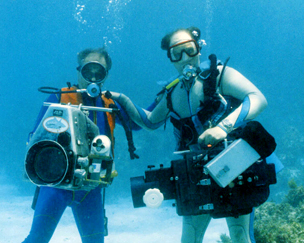Seattle Racing Helmet Manufacturer Loses at TTAB
In 2005, Lloyd Lifestyle Limited and Lloyd IP Limited filed an opposition proceeding with the U.S. Trademark Trial and Appeal Board opposing Tukwila, Wash.-based Soaring Helmet Corp.’s intent-to-use application to register NITRO as a word mark for “motorcycle helmets and protective clothing.” Lloyd IP Limited and VSJ Limited separately petitioned to cancel Soaring Helmet’s registration for NITRO RACING, also a word mark used in connection with “motorcycle helmets and protective clothing.”
On Dec. 11, the TTAB ruled in favor of Lloyd in both proceedings.

TTABlogger John Welch describes the decision as follows:
“In a battle over the marks NITRO and NITRO RACING for motorcycle helmets and protective clothing, the Board ruled in favor of Opposer/ Petitioner Lloyd Lifestyle in finding that Applicant/Registrant Soaring Helmet was not the owner of the marks at the time it applied for registration. Consequently, the Board sustained Lloyd’s opposition and granted its petition for cancellation.
“Plaintiffs and Defendant were using the same Chinese factory to make their respective helmets, which led to the original contacts between the parties. Plaintiffs claimed that it developed the NITRO products for sale in Europe and, when Defendant expressed an interested in selling the products in the USA, Plaintiffs agreed that they could sell NITRO brand products made by approved manufacturers. Plaintiffs also claimed that it directed Defendants to register the mark in the USA on Plaintiffs’ behalf. Defendant asserted that Plaintiffs expressed no interest in the USA, and that Defendant, by using and registering the marks in the USA, became the owner.
“Because there was no written agreement between the parties, the Board had to decide which version of the story was supported by the evidence. It found Plaintiff’s account to be ‘more reliable and more credible’ and Defendant’s testimony to be ‘argumentative, internally contradictory and otherwise less than clear.’”
The case cite is Lloyd Lifestyle Ltd. v. Soaring Helmet Corp. (Opp’n No. 91164265 and Cancellation No. 92045075) (TTAB 2007).
Use of Mark with Web Site Not Sufficient to Establish Use in Commerce
Plaintiff Robert Guichard is an independent film producer who is working on a proposed, unproduced screenplay titled “Whisper of the Blue” about an ex-Navy SEAL who sets out to find a ship of sunken gold and comes across a modern-day pirate. In February 2006, Mr. Guichard launched a Web site at www.whisperoftheblue.com that contains information about his project.

Filiming on the set of “Whisper of the Blue”
In Oct. 2006, Mr. Guichard sued in the Northern District of California to enjoin defendant Universal City Studios LLLP from using “Whisper” as the title of its upcoming motion picture, which had been in production since November 2004. Universal’s movie is about the kidnapping of a seemingly meek 10-year-old boy whose kidnappers soon realize is far less innocent than he appears and, while he may be quiet, they had better be careful because his whisper “may be the last thing that they hear.”

Universal’s “Whisper” (now on DVD)
Plaintiff argued he had gained exclusive control over the use of the word “whisper” in the title of his project because he had acquired a service mark in his Web site domain name for “providing information, via the Internet, in the field of entertainment, namely, the development, production and distribution of motion picture films.”
The court disagreed. In June, Judge Jeffrey White denied Mr. Guichard’s motion for preliminary injunction because “his described use of the WHISPER OF THE BLUE mark does not satisfy the ‘use in commerce’ requirement necessary to establish priority of use. Although Plaintiff alleges that there have been multiple visits to his website since its launch on February 4, 2006, this minimal use does not establish ‘use in commerce’ as required to establish priority. There is no showing that Plaintiff has used his mark in the actual sale or advertising of services in commerce.”
The court also found that Universal had already invested more than $12 million in its “Whisper” movie by the time Mr. Guichard launched his Web site so Universal had priority, not Mr. Guichard.
The court similarly rejected Mr. Guichard’s evidence of confusion: “During oral argument on this motion, in an effort to establish possibility of confusion, Plaintiff introduced an exhibit consisting of a number of Google searches he had conducted using the terms ‘whisper underwater production,’ ‘whisper underwater actors,’ and ‘whisper underwater ‘feature film’. The searches pulled up listings that included both the website for Plaintiff’s proposed film project and other information and listing[s] with reference to Defendants’ motion picture. However, the search is not probative as the search function calls up any internet listing with the search terms, including any motion picture with the search words in the same listing. The searches are far too broad and not probative as to likelihood of confusion. There is no evidence of actual or likelihood of confusion in the record.”
On Dec. 20, the Ninth Circuit upheld the Central District’s denial of Mr. Guichard’s motion for prelminiary injunction. In an unpublished decision, it found: “The district court’s conclusion that Guichard’s web presence at whisperoftheblue.com was not a use in commerce sufficient to create a protectable trademark interest is consistent with our precedent. Because Guichard has no protectable trademark interest, no infringement occurred.”
The case cite is Guichard v. Universal City Studios LLLP, No. 07-16089, 2007 WL 4467589 (9th Cir.).
Merry Christmas!
Still not quite as romantic as Christmas in Madrid, but it’s actually snowing in Seattle!! Peace! (Old photo; STL will resume posting soon.)
STL Welcomes New Blogger Australian Trade Marks Law Blog
Nicholas Weston has staked out some pretty big territory. With its launch of the Australian Trade Marks Law Blog, the Melbourne-based law firm joins my list of favorite regional trademark law blogs. (Also on the list: Canadian Trademark Blog, Chicago IP Litigation Blog, and Vegas Trademark Attorney.) And what a territory it is — ATMLB aims to provide a “reliable source of information and commentary” on trademark issues throughout Australia.
Contributing IP attorneys Mark Davison, Neil Brown, Nick Weston, and Lea Lewin have recently addressed the registrability of scent marks in Australia, Europe, and the U.S.; the importance of entries in the Macquarie Dictionary, the “accepted dictionary of ‘Australian English,’” in establishing trademark distinctiveness; and an Australian court’s decision involving counterfeit dishwashing detergent. This is good stuff for anyone with trademark issues down under.

Australian trademark law: looks friendly but can be painful
ATMLB warns that Aussie law is full of quirks, like the Australian dialect of English. Or the platypus. It “can seem odd at first encounter. It is efficiently adapted to its environment. It looks like you could pat it. But it has a venomous spur on its hind legs that can cause excruciating pain.”
If ATMLB can help practitioners avoid that pain, it will become required reading. Glad to have you out there!
Bentley Motors Obtains Stipulated Transfer of Domain Names
 In September, Bentley Motors Limited Corp. brought an in rem action in the Western District against the domain names BentleyUSA.com and BentleyOnline.com, which Bentley claimed contained its registered trademark.
In September, Bentley Motors Limited Corp. brought an in rem action in the Western District against the domain names BentleyUSA.com and BentleyOnline.com, which Bentley claimed contained its registered trademark.
Bentley’s cybersquatting complaint alleged that the registrant, David Hill, does not use the domain names in connection with an active, bona fide Web site; Mr. Hill repeatedly offered to sell the domain names to Bentley for more than $30,000, saying it was “logical” for Bentley to own them; and he claimed he had intercepted “hundreds of emails” intended for Bentley, including emails containing “very sensitive information in relation to profits, sales numbers, and build costs.” The complaint sought to have the domain names transferred to Bentley.
Bentley brought suit in the Western District in rem because Mr. Hill resides outside of the United States and because the registrar, eNom, Inc., resides here.
Yesterday, Judge Robert Lasnik signed a stipulated order transferring the domain names to Bentley and dismissing the case with prejudice and without an award of attorney’s fees or costs to either party.
The case cite is Bentley Motors Limited Corp. v. BentleyUSA.com, No. 07-1484 (W.D. Wash.).